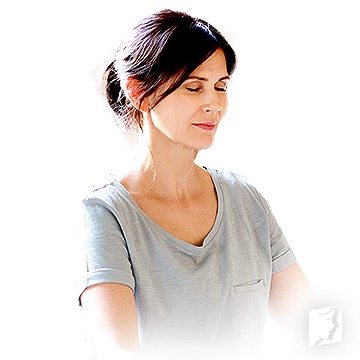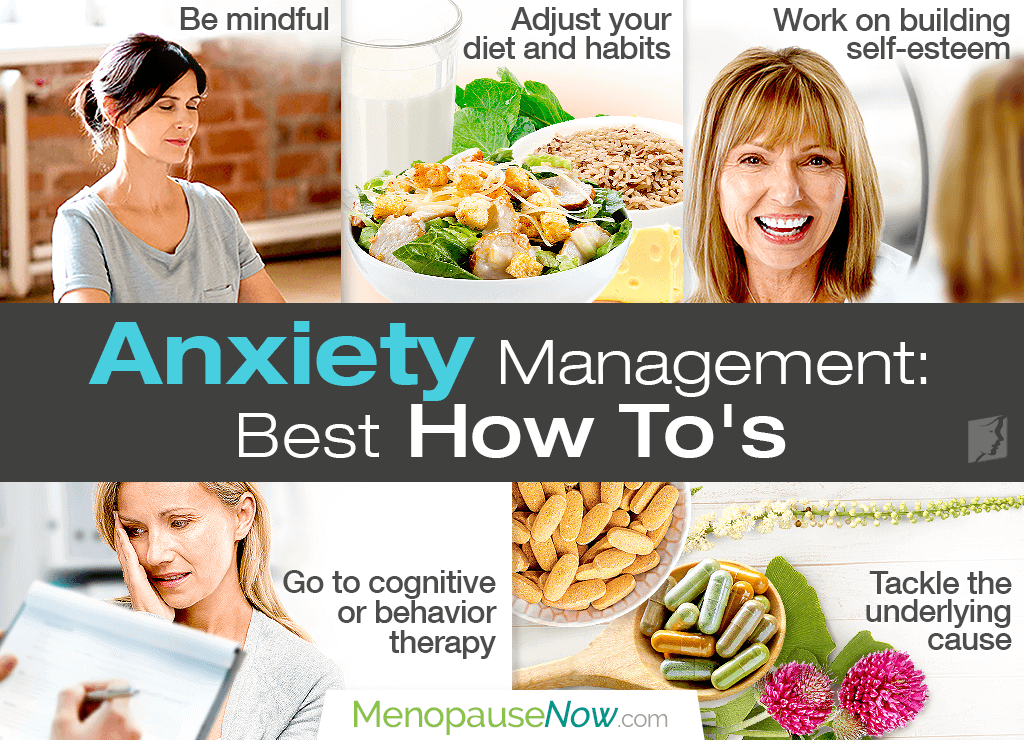Although anxiety can affect anyone at any age in life, this mental health condition is twice as common in women as it is in men, making it all the more important for women to learn how to manage anxiety effectively and efficiently.
Continue reading about some of the best how to's for anxiety management so that you can be one step closer to indulging in emotional stability.
Be mindful

Anxiety develops when you start worrying about circumstances that have not occurred, creating problems that likely may never even surface.
Being mindful involves consciously bringing yourself to the present. By doing so, you are rejecting thoughts of what could be and accepting the current situation, effectively teaching yourself how to manage anxiety.
While meditation is one of the most popular practices of mindfulness, mindfulness can also involve deep breathing exercises, progressive muscle relaxation, and other techniques.
Adjust your diet and habits

Essential vitamins and minerals that help foster appropriate neurotransmitter functioning in the brain include magnesium, B vitamins, and calcium.
Therefore, strive to include foods rich in these nutrients into your diet, such as leafy green vegetables, low-fat dairy products, lean protein, and whole grains of brown rice, barely, or millet.
Also, anxiety management includes knowing how to avoid unwholesome habits that can trigger stress chemicals to be released, provoking anxiety. These include consumption of nicotine, drugs, and caffeine.
Work on building self-esteem

Many anxiety sufferers are not strangers to low self-esteem, which can consist of feelings of isolation, depressed mood, shame, and guilt.
Improving self-esteem involves several steps, like accepting yourself the way you are, treating yourself kindly, focusing on what you can change, celebrating small achievements, surrounding yourself with loving friends, and more.
Go to cognitive or behavior therapy

Cognitive therapists will work with you on modifying feelings evoked from specific situations or mindsets through sensible “self talk,” cognitive restructuring, attention training, and other techniques.
On the other hand, behavior therapy focuses on exposing you to fears to desensitize you, thus allowing you to train yourself to portray the situation in a different way.
By doing so, both forms of psychotherapy can help change patterns of thought that can trigger or were associated with anxiety.
Tackle the underlying cause

For menopausal women who are struggling with anxiety management, the key lies in treating the most probable underlying cause, hormonal imbalance.
These anxiety treatments not only focus on many of the aforementioned lifestyle changes for stress management and relaxation, but also incorporate the use of alternative medicine proven to encourage hormonal equilibrium, such as phytoestrogenic herbal supplements or hormone-regulating supplements.
For other sufferers of anxiety, work with your doctor to run appropriate diagnostic tests before pursuing treatment.
Key Takeaways
Ultimately, relief from anxiety begins and ends with you as anxiety management techniques are as varied as they are numerous. Some of the best techniques include being mindful, adjusting your diet and habits, building self-esteem, and attending cognitive therapy, while women would be best rewarded resolving the underlying cause. For menopausal women, this underlying cause is usually hormonal imbalance, which is best treated with a combination of lifestyle changes and alternative medicine.
Sources
- Anxiety and Depression Association of America. (n.d.). Tips to Manage Anxiety and Stress. Retrieved February 26, 2019, from https://adaa.org/tips-manage-anxiety-and-stress
- Beyond Blue. (n.d.). Anxiety management strategies. Retrieved February 26, 2019, from https://www.beyondblue.org.au/the-facts/anxiety/treatments-for-anxiety/anxiety-management-strategies
- Victoria State Government. (2017). Managing and treating anxiety. Retrieved February 26, 2019, from https://www.betterhealth.vic.gov.au/health/conditionsandtreatments/anxiety-treatment-options




